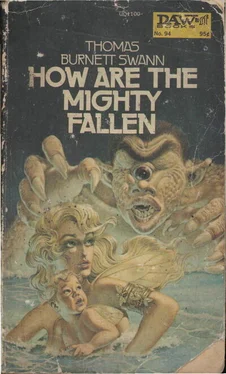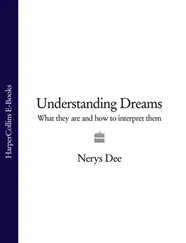Thomas Swann - How are the Mighty fallen
Здесь есть возможность читать онлайн «Thomas Swann - How are the Mighty fallen» весь текст электронной книги совершенно бесплатно (целиком полную версию без сокращений). В некоторых случаях можно слушать аудио, скачать через торрент в формате fb2 и присутствует краткое содержание. Жанр: Фэнтези, на английском языке. Описание произведения, (предисловие) а так же отзывы посетителей доступны на портале библиотеки ЛибКат.
- Название:How are the Mighty fallen
- Автор:
- Жанр:
- Год:неизвестен
- ISBN:нет данных
- Рейтинг книги:4 / 5. Голосов: 1
-
Избранное:Добавить в избранное
- Отзывы:
-
Ваша оценка:
- 80
- 1
- 2
- 3
- 4
- 5
How are the Mighty fallen: краткое содержание, описание и аннотация
Предлагаем к чтению аннотацию, описание, краткое содержание или предисловие (зависит от того, что написал сам автор книги «How are the Mighty fallen»). Если вы не нашли необходимую информацию о книге — напишите в комментариях, мы постараемся отыскать её.
How are the Mighty fallen — читать онлайн бесплатно полную книгу (весь текст) целиком
Ниже представлен текст книги, разбитый по страницам. Система сохранения места последней прочитанной страницы, позволяет с удобством читать онлайн бесплатно книгу «How are the Mighty fallen», без необходимости каждый раз заново искать на чём Вы остановились. Поставьте закладку, и сможете в любой момент перейти на страницу, на которой закончили чтение.
Интервал:
Закладка:
At a safe distance from the shore, I treaded water, you beside me, both of us more curious than frightened, and studied his features. His hair was matted with sores and dirt. He seemed all mouth and eye; mouth ferocious with crooked teeth, eye unblinking and cold as an undersea cave. He reminded me of a shark.
“Your hair is spun out of honey,” he said. “Your breasts are ripe pomegranates.” Cyclopes pretend to be poets, but they steal their metaphors from our Siren songs. The stench of him, dried blood and goat’s hair, wafted over the waves. He ought to write scurrilous satires, I thought, instead of lyrics.
“Mama, let’s go home,” you pleaded. “He smells like a goat.”
“If you trouble me again,” I said, “I'll gouge your eye with my spear.”
He wrenched a stone from the beach and hurled it into the sea to splatter foam in my face.
In the following days, day turning into month, spring ripening into summer, Silvergilt did not return to the rocks beside the sea. She has swum to Philistia, I thought She has made her escape. But I must see to my hive.
Meanwhile, the time had come for the Dance of the Bears. The bears or Artori of Crete were our special friends in the forest, our allies against the Cyclopes and other beasts. Small, white, and delicate in appearance, disconcertingly fierce when aroused, they worshipped the Goddess in a ritual dance performed on the shortest night of summer, and we inevitably and joyfully joined them. The workers remained in the palace. To them, dancing was idleness and sin. But the drones, Myiskos and Hylas among them, were prompt to accept the invitation in spite of a threatened storm, and the bears greeted us as if I had promised them a glimpse of Honey House, the place where they go after death. We met in a meadow trodden by the hooves of Satyrs. “I will play the flute,” Myiskos cried. “And I will beat the drum,” said his friend. To accompany flute and drum, the forest blended her many voices: wind in the branches of carob trees, stream carousing with rocks and fish, thump of woodpecker beaks on aged oaks. Even the plain little nightingales opened their throats in the songs which were their one loveliness.
The bears began to dance. Heads swayed from side to side. Left foot to the left. Right foot to the right. Return. Repeat. Advance. Retreat White fur in the light of the moon. Molten fur in a sea which expanded, shrank, pulsing as if to the moon’s commands. I watched you join the bears, agile among the dancers, and laughed as if baby Pan had joined the festival.
“I watched you join the bears, agile among the dancers.”
Then it began to rain. It was one of those sudden rains which rapidly become a tempest. Lightning made of the sky a great parchment of bold hieroglyphics.
“Boreas out of the north,” I cried. “No more dancing tonight.” I tried to shelter you from the big cold drops.
The bears scrambled for shelter among the trees. Fearless of Cyclopes, they feared the lightning above all natural dangers because it singed their fur.
“Myiskos, Hylas,” I called. “Back to the hive.”
“Honey Hair!”
I knew the voice before I saw the face.
Goliath stood in our path. The noise of the storm had hidden his approach. The rain and trees hid most of his body, but I saw that his red eye had fixed me in its baleful glare.
Remembering wings, I whispered around him, you in my arms, and fled toward the hive, only to see a sight more terrible than a Gorgon’s stare. The palace was under attack. The workers were making a gallant defense with their poison spears, but Cretan palaces have no walls, and the bears had scattered among the trees. I looked behind me for Myiskos and Hylas, who had waited to wrap their musical instruments in cloths against the storm.
Myiskos raised the stick with which he had beaten the drum. It was a pathetic weapon. Goliath snapped it between his fingers and clutched Myiskos around the waist Hylas ran at him with no weapon but his flute, which he tried to use as a dagger; Goliath, whose skin was as tough as that of a Hydra, seized him with his free hand, thrust him above his head with Myiskos, and flung them against each other and then to the ground.
What must I do? What could I do? I could not get to the palace. I could not save my drones. I could only save my son. The sea, I remembered. The sea… Jonathan can swim like a fish…
It was my last sight of the hive. I thought that the waves would shred our wings. I thought that weariness would turn us into lead and sink us among the crabs and the Hydras. But we did not fight the waves, you and I, we rolled with them; we used them to buoy us like two little boats. Thus we rode with the storm, long, long-how many turns of the hourglass? — scarcely using our arms and legs.
The storm subsided like a placated god. The Great Green Sea enfolded us in his silver fleece: whitecaps, spray, the aftermath of Poseidon’s wrath. Had he sent the storm to conceal the attack of his sons, the Cyclopes?
We could not see our island.
“It’s that way,” you gasped.
“I know,” I said, but the current swept us inexorably from our hive, our home.
There were halcyon times when we rested between the waves. We lived on seaweed and, being Sirens, drank the water in spite of its salt It was a dangerous journey, it was a desperate journey; but the current, at first inimicable, became our friend and carried us toward the mainland and the coast of Philistia…
We climbed from the sea and fell, exhausted, onto a bed of broken shells.
“Mama,” you asked. “Where are we?”
In the distance, a city coruscated with slender temples and laden wharves, goose-prowed ships and cockleshell fishing boats. Around us, white sand was punctuated with wizened bushes of sea-grapes and driftwood as black as timbers from a burned galley.
“Philistia, I think.”
“Will the Philistines shelter us?”
“I’m afraid they would take us captive and put us in cages to show in their temples.”
“You mean they would show us off? You, a queen? Silver-gilt said they were like the Cretans.”
“It’s true they came by way of Crete from their northern home. And they are kind. But all human peoples take slaves. Even we have our sea cows to give us milk.”
“Why don’t we swim home?” you asked.
“Because,” I said, “I have hurt my arm.”
CHAPTER FOUR
“You’ve slept all day,” you said. “Eat now, Mama.” “Yes, you must both eat.” The speaker was a young woman who had darkened her eyes with kohl, ruddied her cheeks with the powder of the insect called cochineal, and reddened her hair with the dye of the henna plant. Even her voluminous robe could not conceal her enticing figure. I mistook her for a Philistine courtesan until I saw the sea in her eyes and recognized a considerably altered Alecto.
“Silvergilt, you’ve hidden your wings and dyed your hair! I must call you Scarletgilt.”
“It’s just as well, Honey Hair. Wings mean death or slavery in this land. The Philistines will worship you but lock you in a temple. The Israelites will take you for a demon, since you are too beautiful and the wrong sex to be an angel, and probably stone you.”
The sight of her metamorphosed from a free-living Siren into a human-appearing prostitute saddened me almost out of the gladness of seeing her.
“What shall we do?” I sighed. “Bumblebee and I.” Even a queen, particularly when she has lost her palace and her kingdom, can ask advice.
“What I did. Hide the marks of our race. Become one with this land. Only three months ago I arrived on these shores. Look at my feet”
Her sandals of kidskin revealed toes without webs. “A simple operation with a knife removed them. As you know,” she added with a disconcerting smile, “solitary queens like me have always been expert with cutlery.”
Читать дальшеИнтервал:
Закладка:
Похожие книги на «How are the Mighty fallen»
Представляем Вашему вниманию похожие книги на «How are the Mighty fallen» списком для выбора. Мы отобрали схожую по названию и смыслу литературу в надежде предоставить читателям больше вариантов отыскать новые, интересные, ещё непрочитанные произведения.
Обсуждение, отзывы о книге «How are the Mighty fallen» и просто собственные мнения читателей. Оставьте ваши комментарии, напишите, что Вы думаете о произведении, его смысле или главных героях. Укажите что конкретно понравилось, а что нет, и почему Вы так считаете.












